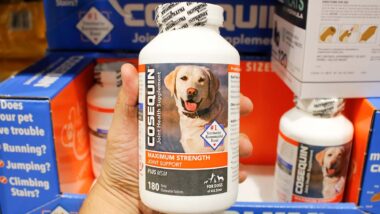Top Class Actions’s website and social media posts use affiliate links. If you make a purchase using such links, we may receive a commission, but it will not result in any additional charges to you. Please review our Affiliate Link Disclosure for more information.
Lye Overview
Lye is a metal hydroxide that is typically made by leaching ashes or strong alkali, a very soluble element in water, which produces caustic basic solutions.
Commonly known as sodium hydroxide, and sometimes potassium hydroxide (KOH), Wikipedia notes that the substance has a wide range of uses including curing food and making soap.
In its purest form, lye is a waxy, white solid that is good for absorbing water and can form various aqueous solutions. For this reason, this form of caustic soda is often used for making candles or soap, but impure forms of this can be found in various cleaning products like drain cleaner.
Consumers looking to buy caustic soda are advised to buy in bulk and may be asked to sign a form that states they cannot use this product to make illegal drugs.
If consumers do by caustic soda, they should keep it sealed and protect it from moisture, as well as from children and pets. Touching or ingesting lye could cause potentially serious chemical burns, so the consumer should use gloves or utensils.
If sodium hydroxide is being used in chemical experiments, it should be in a well ventilated room or outdoors, as this compound can release heat and toxic fumes.
Depending on the purpose, sodium hydroxide could be substituted with potassium hydroxide, but should still be handled with care and still be conducted in a room with ventilation.
While caustic soda used to be easily accessible, according to thoughtco.com, it has been used to make illegal substances and has since become more difficult to purchase.
The reason why lye was used to make such substances is because it can control pH levels during the methamphetamine manufacturing process. While there are still ways to get the caustic soda, this has allegedly contributed to a recent price fixing scam involving several companies.
Overview of Caustic Soda Price Fixing Scheme
Several caustic soda manufacturers have been allegedly engaging in a price fixing scheme since October 2015, which allegedly caused the price of the compound to increase by 50 percent in the last three years.
This reported price increased has already spurred legal action, with at least one lawsuit alleging certain companies conspired with each other to artificially increase the price of caustic soda by allegedly shutting down production to create a shortage.
In addition, several claims allege that while the price for caustic soda had increased for direct purchasers, the market reportedly dropped by six percent. But this changed in 2015, when caustic soda products allegedly schemed to increase prices.
According to the FTC, the act of conspiring to manipulate prices or artificially manipulate the market for the companies’ benefit is called price fixing, which typically involves lower, raising, or stabilizing the price of goods or competitive terms.
These actions violate federal anti trust laws including the Sherman Anti Trust Act, which was established in 1890 that restricted companies from creating monopolies and behavior that hinders a healthy competitive market.
Companies allegedly involved in the caustic soda price fixing price fixing scheme includes:
- Olin Corporation
- K.A. Steel Chemicals, Inc.
- Occidental Petroleum Corporation
- Occidental Chemical Corporation
- Westlake Chemical Corporation
- Shin-Etsu Chemical Co., Ltd.
- Shintech Incorporated, Formosa Plastics Corporation
- Formosa Plastics Corporation, U.S.A.















